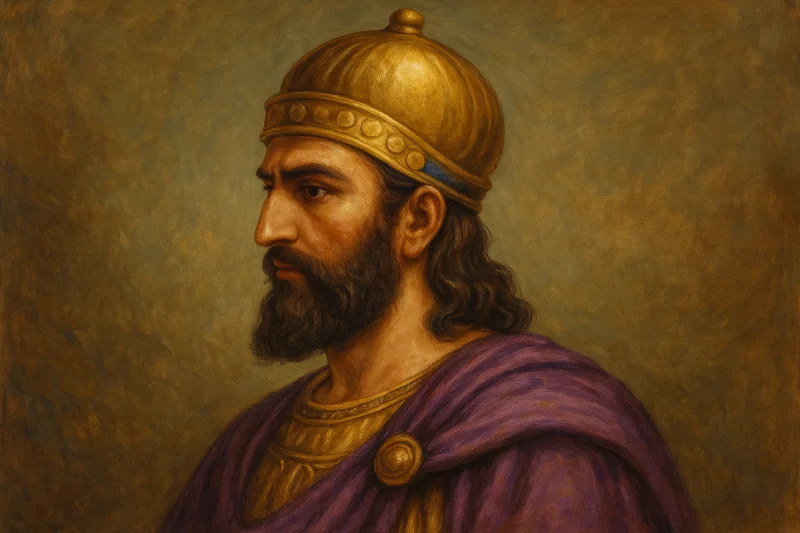Short Summary
Cyrus the Great was the founder of the Achaemenid Empire, which became one of the largest empires in history. Known for his innovative approach to governance, he respected the customs and religions of the lands he conquered, setting a new standard for leadership. His establishment of the Cyrus Cylinder is often regarded as the first charter of human rights. Cyrus is celebrated for his military strategies and benevolent rule, which have left a lasting legacy in world history.
Early Life & Education
Cyrus was born around 600 or 576 BCE in Anshan, Persia, to Cambyses I, king of Anshan, and Mandane, daughter of the Median king. His early life is shrouded in legend, with tales depicting him as a destined great ruler. Educated in the royal court, he learned about governance and military tactics. Influence from his Persian heritage and the Median culture shaped his leadership style. These diverse cultural exposures played a pivotal role in his later policies of tolerance and respect for different traditions among his empire's subjects.
Career Highlights
After ascending the throne of Anshan in 559 BCE, Cyrus quickly expanded his domain, culminating in the overthrow of the Median Empire. He then established the Achaemenid Empire, uniting the Medes and Persians. His most notable conquest was Babylon in 539 BCE, where he was welcomed as a liberator. Cyrus's administration was marked by innovative policies, such as the satrapy system, which delegated authority to regional governors. His reign set precedents in governance that influenced subsequent empires in Iran and beyond.
Major Achievements
- Founded the Achaemenid Empire, uniting the Medes and Persians under one rule.
- Conquered Babylon in 539 BCE, liberating captives and allowing religious freedom.
- Issued the Cyrus Cylinder, often considered the first charter of human rights.
- Implemented the satrapy system, a model for efficient and organized governance.
- Promoted cultural and religious tolerance throughout his empire.
Famous Quotes
- "Whenever you can, act as a liberator."
- "I am Cyrus, king of the universe, the great king."
Interesting Facts
- Cyrus's tomb in Pasargadae is a UNESCO World Heritage site.
- He is mentioned in the Bible as a liberator of the Jewish people.
- Many consider his policies foundational for the concept of human rights.
- His legacy influenced leaders such as Alexander the Great.
- A festival, Cyrus the Great Day, is celebrated in Iran on October 29.
Legacy / Influence
Cyrus the Great's legacy endures through his model of leadership, which combined military prowess with respect and tolerance for diverse cultures. His approach to governance and human rights has influenced many subsequent civilizations. His empire set the foundation for future Persian empires, and his ideals resonate in modern discussions about leadership and human rights, marking him as a pivotal figure in world history.
FAQ
Q: Why is Cyrus the Great famous?
A: Cyrus is famous for founding the Achaemenid Empire and his pioneering approach to leadership and governance.
Q: What was Cyrus's approach to conquered lands?
A: He respected the customs and religions of the conquered peoples, promoting tolerance and integration.
Q: What is the Cyrus Cylinder?
A: The Cyrus Cylinder is an ancient artifact considered by many as the first declaration of human rights.
Q: How did Cyrus impact future empires?
A: His governance model and policies of tolerance influenced the administration of subsequent empires.









